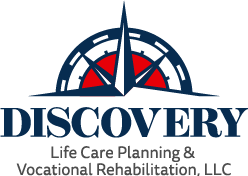Solid Organ Transplantation
VIII. Vocational Considerations and Rehabilitation
The success of a transplant is measured by the recipient’s ability to return to work, or school in the case of children. This outcome will vary from client to client, dependent upon the severity of their illness prior to transplant, the type of transplant performed, and the degree of post-transplant complications experienced. When evaluating the potential for a return to work, all of these client-specific areas must be assessed, along with consideration of the age of the client, the amount of support care services they have received, and the type of occupation to which they are to return. All adult transplant candidates and ultimate recipients, will have some lost time from work, although the amount varies. This is something that will have to be assessed on an individual basis. Children can receive educational services at home and/or in the hospital, which will help to deter their lost time from school. Their ultimate success in completing their education and entering the competitive labor market will again depend upon the success of the transplant in curing their primary disease and the degree of chronic complications they experience post-transplant.
Acute transplant care will come from the transplant center as an inpatient, but after discharge to ambulatory care, support will need to be provided by a caregiver, usually a family member, in conjunction with the transplant housing facility near the center. Once discharged home, post-transplant care is returned to the primary care physician, the transplant recipient and the family.
